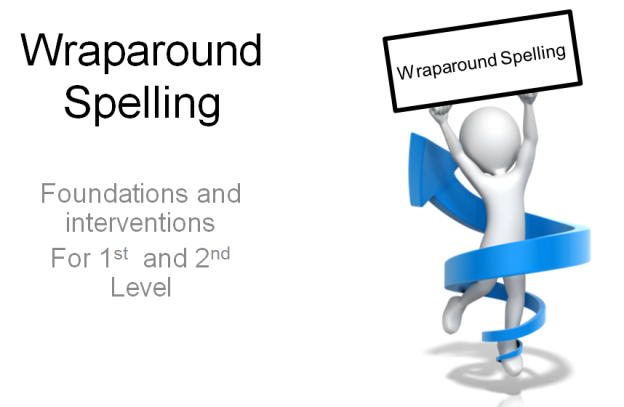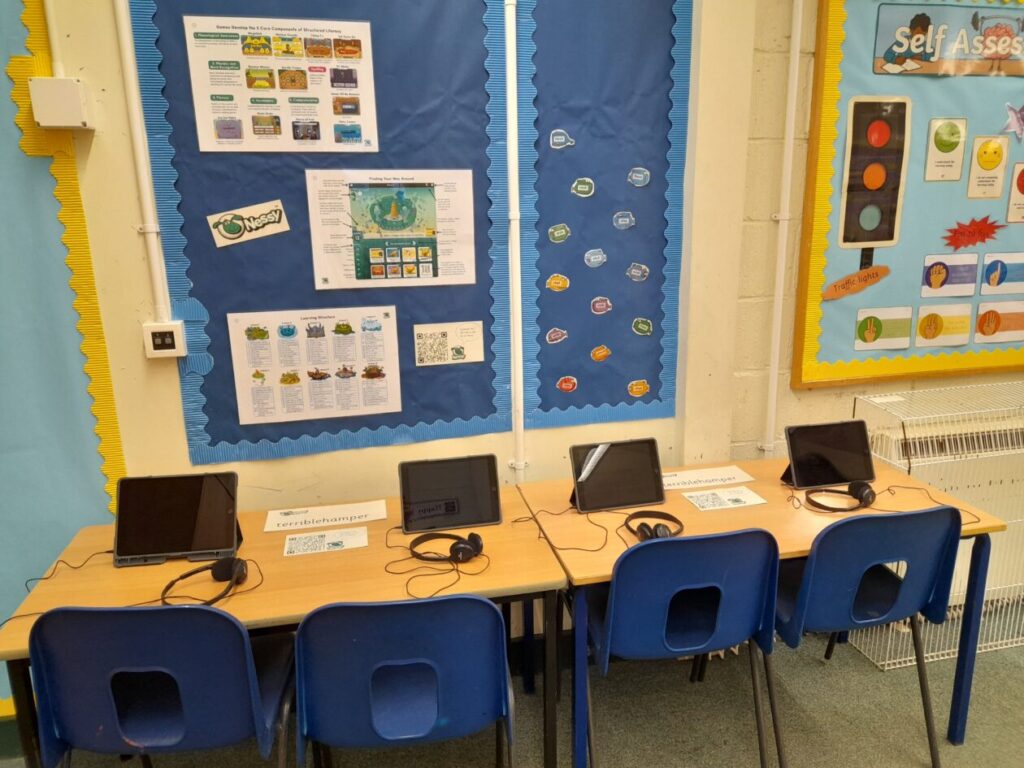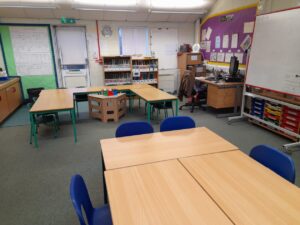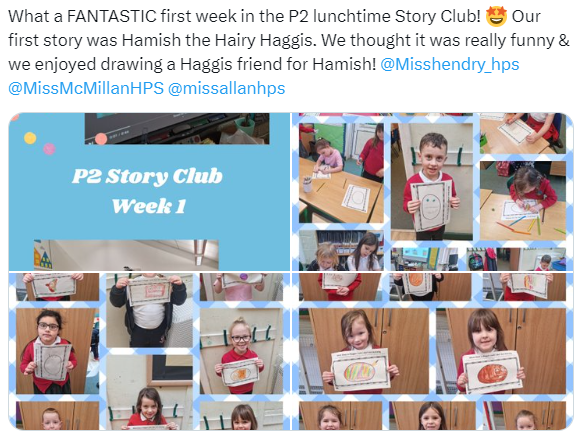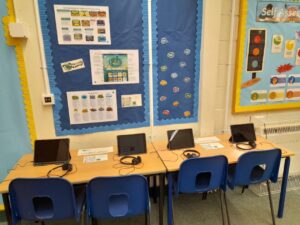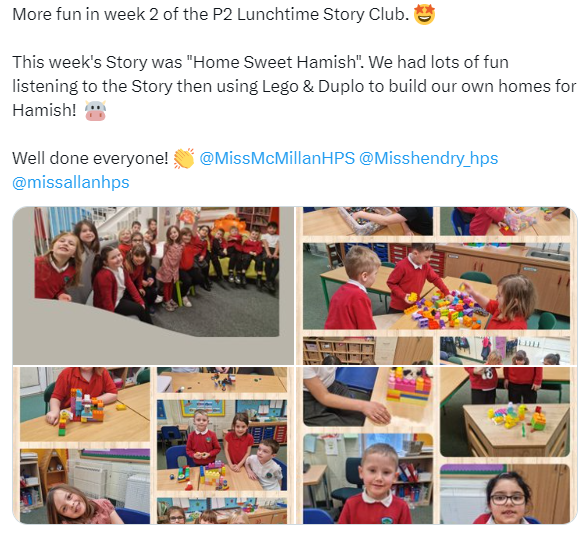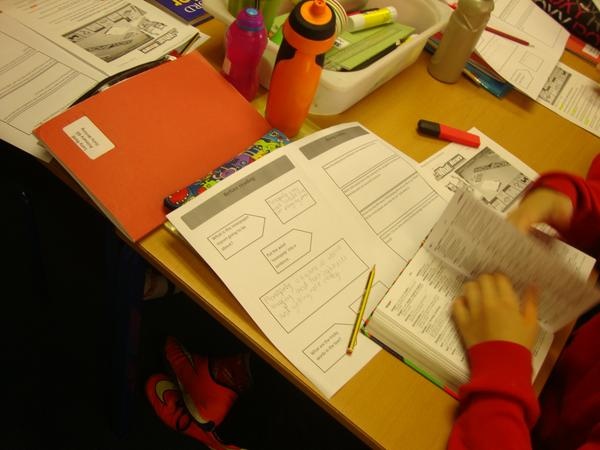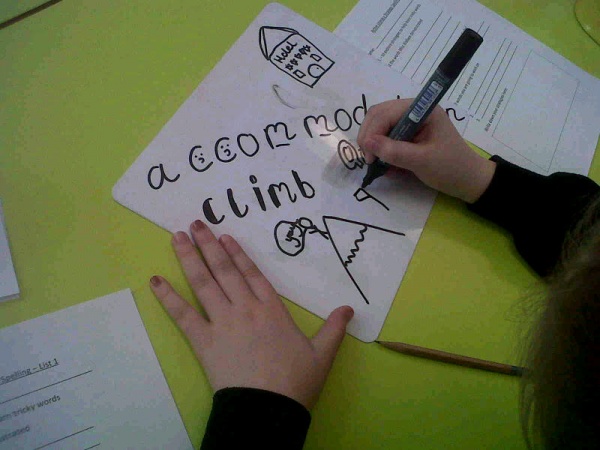
Clare Casey, depute head teacher at Antonine PS and her class teacher colleagues Lucy Dowds and Alison Todd have been trialling the Wraparound Spelling approach with their primary 7 and primary 4 classes this year. When researching approaches to the teaching of spelling, they were introduced to Wraparound Spelling by Sharon Earacker from Kinnaird PS. They felt that this approach complemented their use of other literacy initiatives such as Word Aware and Colourful Semantics.
Wraparound Spelling was developed by Highland Council literacy support team and is:
“a principled approach to the teaching of spelling based on the phonic code, the meaning of words, and the application of words. The approach makes the connections between decoding (for reading) and encoding (for spelling). The Wraparound Spelling approach to the teaching of spelling can be used universally to support the learning and teaching of spelling for all children, and as a targeted approach.
Click here to learn more.
This spelling improvement focus was instigated by both whole staff self-evaluation and evidence from children’s work. Staff observed that children were not de-coding words correctly or transferring their spelling skills and strategies within literacy work or their wider learning. Through moderation of the planning of spelling and handwriting, the spelling improvement group noted significant variations across the school. Staff wanted to feel more confident in planning for handwriting and spelling and to improve their knowledge of strategies and approaches which would support their children’s progress.
Alison and Lucy trialled their interpretation of the programme as a universal spelling approach with their primary 4 and 7 classes. They were thrilled to observe very significant impact with some children in both classes progressing by 1 to 1.5 years when assessed using the Single Word Spelling test. Alison also observed her children talking more frequently about their use of the spelling strategies taught. In addition, Antonine’s House Captains worked alongside the Improvement group to redevelop Antonine’s Spelling Sheriffs. This is a whole school initiative which promotes learners self-checking skills and celebrates success in spelling.

To enable you to explore their approach to planning and assessing spelling as a result of this work, Clare and colleagues have shared documentation here within our Literacy in Falkirk team. (Please contact Yvonne McBlain to join this team) However, here is an extract of Alison’s adaptation of planning using the Wraparound spelling approach.
Termly plan: Each term pupils should be taught a new spelling strategy which will be practised weekly as a whole class.
- E.g. Term 1: Mnemonics
- Term 2: Rhyming words (looking for similarities in spelling of rhyming words)
- Term 3: Stretch with friends (Growing words by adding prefix or suffix e.g. ing, ed, etc.)
- Term 4: Vowels and Syllables (How are they related?) Structure of a sentence using Colourful Semantics (create own dictation sentence)
Weekly Plan:
Monday – Practice Whole Class Spelling Strategy & Teach new spelling words to each group:
- Say the words
- Split into the sounds (Elkonin boxes or diacritical marking)
- Look for diagraphs
- Create sentence of the week (or introduce teacher made sentence)
- Pupils complete independent spelling task while other groups are being taught e.g. pyramid writing, rainbow writing, etc.
Tuesday – Independent task:
- Spell words into Elkonin boxes or diacritical marking
- Practice Dictated sentence
- Find rhyming words
Wednesday – Grammar:
- Can you spot the noun, verbs, and adjectives?
- Play Spelling game- 60 second challenge, tricky word square, etc.
- Practice Dictated Sentence
Thursday – Independent task:
- Write words 3 times (perhaps using ipads- notes, stikbot animation, etc.)
- Practise dictated sentence
Friday – Spelling and dictated sentence test
- Self-assess – Full stop, capital letter and spelling accuracy
- Play spelling games- eye spy, boggle, etc.
Clare and all teaching colleagues in Antonine PS will now build on the success of this work by introducing the approach for the teaching of spelling from primary 3 upwards. A draft programme has been developed by the Improvement Group and will be introduced to the whole school through staff CPD next session. This will then be piloted and evaluated at the end of next session. Primary 1 and 2 teachers will continue to use Jolly Phonics and Jolly Grammar to lay the foundations for this work.

The same Improvement Group also developed Antonine’s Handwriting Policy this session. This is a document which details:
- the rationale behind teaching handwriting
- preparation for handwriting
- a planner detailing skills progression
- the focus of assessment
This policy has been shared a. cross the school and will be implemented by all next session. Teachers across the school are also supported by their “What Literacy Looks Like at Antonine PS” document. Alongside effective use of the school staff share area, this provides valuable guidance for all staff regarding their teaching of literacy
As a result of all of these improvement actions, staff confidence has increased for all aspects of literacy. Teachers are 38% more confident in their teaching of handwriting, and 24% more confident in their teaching of spelling. Please read this post in the Literacy in Falkirk team to view the “What Literacy Looks Like at Antonine PS” document.

